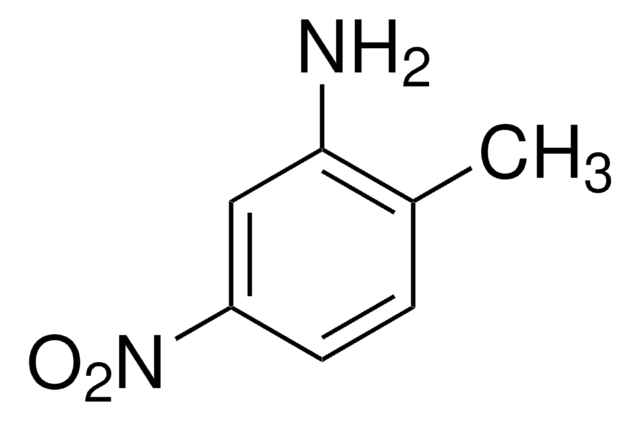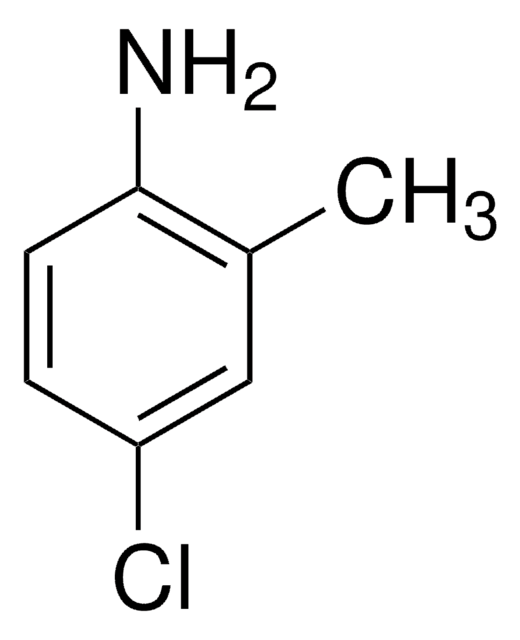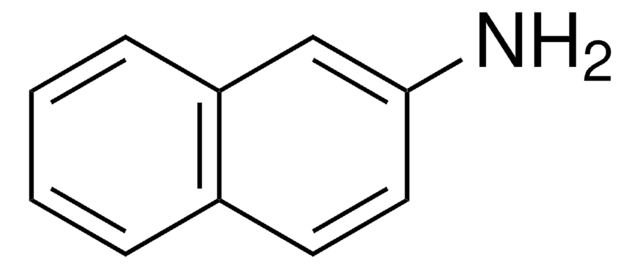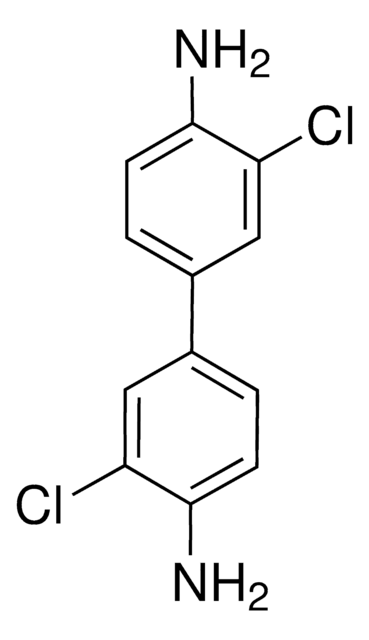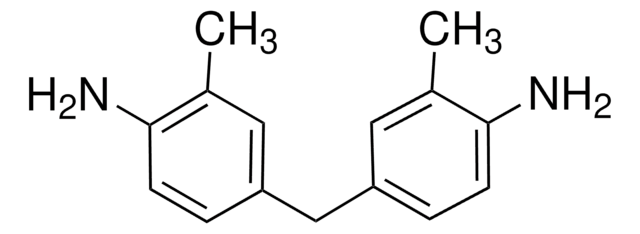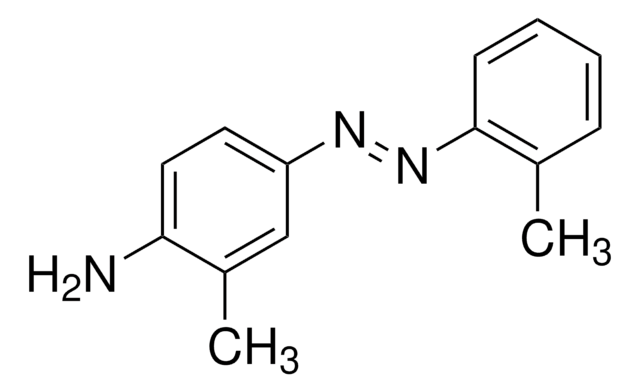32831
2,4-Diaminoanisole
analytical standard
Synonym(s):
4-Methoxy-m-phenylenediamine
About This Item
Recommended Products
grade
analytical standard
Quality Level
shelf life
limited shelf life, expiry date on the label
technique(s)
HPLC: suitable
gas chromatography (GC): suitable
application(s)
cleaning products
cosmetics
food and beverages
personal care
format
neat
storage temp.
2-8°C
SMILES string
COc1ccc(N)cc1N
InChI
1S/C7H10N2O/c1-10-7-3-2-5(8)4-6(7)9/h2-4H,8-9H2,1H3
InChI key
BAHPQISAXRFLCL-UHFFFAOYSA-N
Looking for similar products? Visit Product Comparison Guide
General description
Application
- Mainstream waterpipe smoke using liquid chromatography-electrospray ionization-tandem mass spectrometry (LC-ESI-MS/MS).
- Haircolor products by high performance liquid chromatography (HPLC).
Recommended products
Signal Word
Danger
Hazard Statements
Precautionary Statements
Hazard Classifications
Acute Tox. 4 Oral - Aquatic Chronic 2 - Carc. 1B - Muta. 2
Storage Class Code
6.1C - Combustible acute toxic Cat.3 / toxic compounds or compounds which causing chronic effects
WGK
WGK 3
Flash Point(F)
Not applicable
Flash Point(C)
Not applicable
Personal Protective Equipment
Choose from one of the most recent versions:
Already Own This Product?
Find documentation for the products that you have recently purchased in the Document Library.
Our team of scientists has experience in all areas of research including Life Science, Material Science, Chemical Synthesis, Chromatography, Analytical and many others.
Contact Technical Service